6 reasons why Proton still needs the tongkat after 30 years
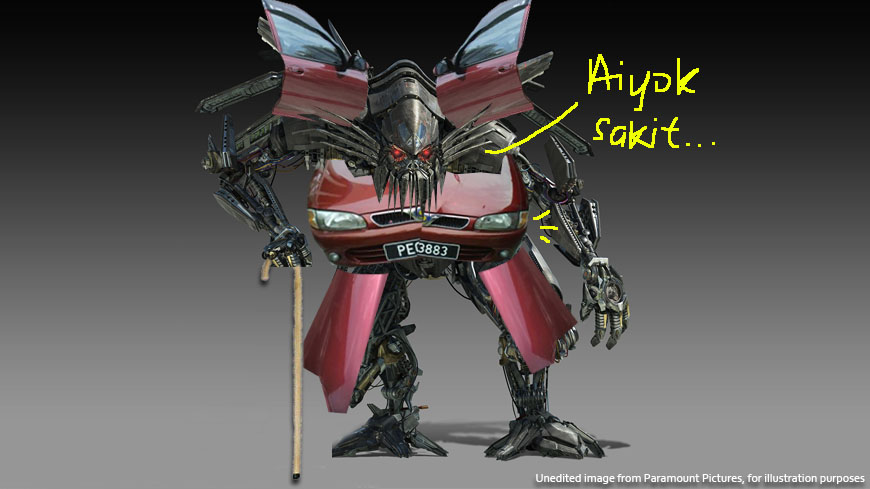
- 1.6KShares
- Facebook1.5K
- Twitter4
- LinkedIn8
- Email17
- WhatsApp21
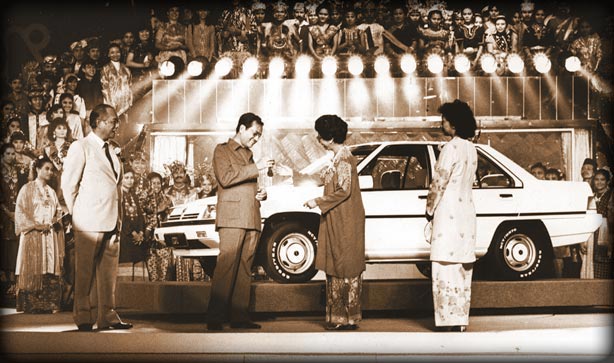
On this month, 30 years ago, Proton revealed the pride of the nation on four-wheels – The Proton Saga. Despite what you may think of it today, back in the day it was the it-car, the cool kid on the block.
Based on the Mitsubishi Lancer Fiore, it was baby-steps for a young nation to accelerate as a modernised country, much to the envy of its South East Asian neighbours.
Fast forward to today, multiple tall buildings, and dividing society modern infrastructure aside, our first national car brand, Proton, has been a bumpy roller coaster ride. What should’ve been a proud Malaysian brand has now found itself to be a ‘last resort’ among most Malaysians.
Their history has been tied to foreign car brands like Mitsubishi (the brand Jacky Chan is well associated with), Honda (which gave us lots of awesome Japanese cars and Type -R! ), Citroen (it should not be named, oh well…..it’s the Tiara btw) and Renault (remember the dreadful 1.8-litre engine for the Waja?). But they’ve stood on their own for quite some time, giving birth to cars like the Preve, Suprima S, Exora and the new Iriz.
So, all seems steady with this these guys, right? But tiba-tiba these fellas go and sign with Suzuki to rebadge their compact cars! (In other words, get help again lor.)
Why does this GLC need to make a U-turn by rebadging cars from other manufacturers? Just last year, they said a firm ‘no’ to rebadging! Plus, with over 30 years in the market, why does it look like Proton just cannot stand on its own two feet?
We summarise the problems being faced by our country’s pride and joy below:
1. Proton is still an ikan bilis

Now, Proton has two plants in Malaysia and only launched one model (Proton Iriz, btw gaiz watch this review from Autobuzz.my!) in 2014, sold 115,783 cars in Malaysia on that year. International sales-wise, the figures were depressing, with Proton selling 814 cars in Australia last year. Also, are there 11 Myvis parking outside a parking lot? That’s the same number Proton sold in the UK in 2014.
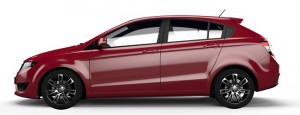
On the other hand, brands like Toyota, Ford and Volkswagen are some of the giants in the automotive industry. They have hundreds of car plants worldwide and employ an army of staff. Each brand can churn up to 10 new car models in one year and can easily generate millions by selling millions of cars annually.
The point is Proton, which also owns UK’s Lotus Cars (Lotus sold a dismal 235 in the UK last year), is tiny in the automotive industry. The reason why Proton was once a darling in the UK (remember that Mr.Bean episode?) was because they had the direction to work closely with Mitsubishi back then.
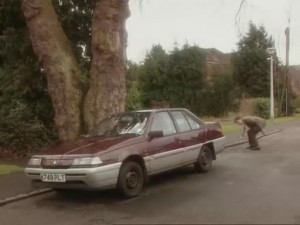
Developing a car isn’t as simple as “gimme something chun“. It involves months or years of research and development. For example in 2013, Volkswagen and Toyota were among in the top ten biggest spenders of R&D as these brands spent billions, while in Proton they received nothing from the government. Yes, according to The Star, Dr Mahathir said that Proton never received any direct cash handouts from the gomen. Over the years, it has invested its own money for research and development.
There is no way Proton can do that alone, and even by today’s standards they are struggling to do so. We explain more on why in the later points.
2. Their products a bit tak-boleh la 🙁
After the implementation of the dreadful GST in 2015, sales of Proton nosedived in April. What happened? Isn’t it new models such as Suprima S and Iriz suppose to elevate Proton into higher grounds? Aren’t the new Protons as good as a BMW?
Earlier, you may be wondering why Proton sales were so terrible in Europe. First thing’s first – you need to know what that there are acceptable limits for exhaust emissions in the EU continent. This is referred to as ’emission standards’.
As vehicles emit CO2 which contributes to carbon footprint, EU imposes strict emission standards by enforcing manufacturers to introduce environmental friendly vehicles. That said, the current EU standard is moving to Euro-6. Our Protons meanwhile, has its latest engine up to Euro-4. That’s slow for a ikan-bilis manufacturer like Proton.

And that brings us to our next point…
3. Their sales margin doesn’t make sense
Worse, they are relying a lot from volume sales of lower end and older models like the Saga SV (Super Value) to make profit. Did we mention in 2014, a shocking revelation revealed that Proton made less than RM500 nett profit (!!!) for the Saga SV. For a volume seller with tiny profits is downright pathetic for Proton.
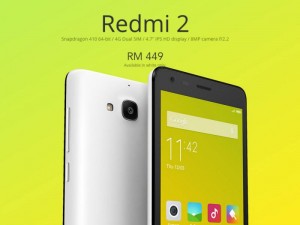
Proton current’s problem includes aging models such as the Satria Neo, Persona, Exora and the Saga. Consumers are not fond with models reaching the age of six or more, a problem usually not faced by big and rich manufacturers. On a more positive note, Proton will launch three new models in 2016 – the Perdana (based on the Honda Accord) as well as replacements for the Saga and Persona. This means good news to both Proton and consumers.
But here lies another problem – a fragmented product line-up (before reaching the next point, please read the various categories of cars here).
Proton is currently offering too many passenger cars, more so in the C-segment category (the Preve, Persona, Suprima S and the recently discontinued Inspira). Factoring in the other B-segment cars like the Iriz, Satria Neo and Saga, it seems Proton didn’t have much focus for a small manufacturer.
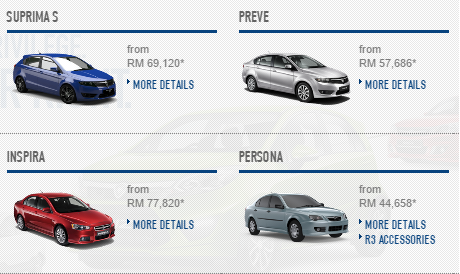
On the other side, Perodua has a smaller model lineup (the Axia, Myvi and Alza), which allows Perodua to focus on its products. More so, Perodua has better directions unlike Proton. More on that in the points below…
4. They seem to be steering without directions
Proton as we know started as a manufacturer assembling cars based from Mitsubishi models. Proton then took a step further with its first self-designed car, the Waja, followed by its first self-developed engine, the Campro. Soon afterwards, Mitsubishi walked away after realising that its apprentice could stand on its own two feet. Subsequent self-developed models from Proton continued, with the Iriz being its latest iteration.
But strangely in 2010, Proton renewed its relationship with Mitsubishi with a replication of the Mitsubishi Lancer model. Yes, replication, not ‘inspiration’. Behold – the Proton Inspira! (I still remember the cheeky tagline “Smart guys get it”).
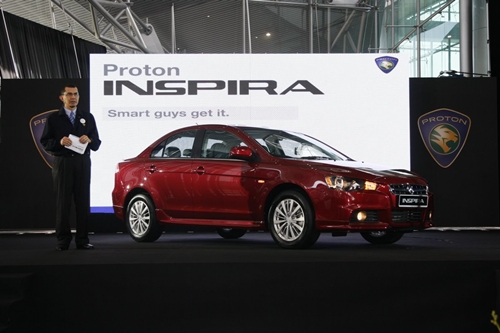
Actually, rebadging makes sense as it relieves a tiny manufacturer like Proton from incurring cost during R&D to develop a new model. For example, Proton’s latest MOU and partnership with Suzuki will allow Proton to access Suzuki’s know-hows and technology, especially when it comes in making small compact cars. They’re probably a lil jealous seeing Perodua enjoy brisk sales of the Perodua Axia.
Even our International Trade & Industry minister, Datuk Seri Mustapa Mohamed, said this on why they approached Honda for the Perdana replacement model.
“It costs no less than US$500 million (RM1.6 billion) in research and development to create a new car, and if you just talking about 4,000 to 5,000 units in production volume, that does not justify the cost.”
Throughout three decades, Proton signed a number of Memorandum of Understanding (MOU) with various manufacturers across the globe. This includes collaborations with giants such as Volkswagen and building electric cars. As summarized by Carlist.my, the majority of the MOUs and deals went south.

Meanwhile, DRB-Hicom (the current owners of Proton) is just another GLC we all familiar with… something like MAS. Since 2012, Proton continued to make losses and remained a second fiddle to Perodua for almost a decade. Apart from pumping money, perhaps what’s more concerning is that DRB-Hicom seems to be clueless with Proton.

Case in point, take a look on how recent Proton cars were marketed. Was the Preve marketed as a global car? If so why it was not sold in Europe? (Answers at no.2 btw!) Did we hear correctly the Suprima S was supposed to be Proton’s game changer? If so, then why was Iriz called the game changer as well? The Suprima S was among the worst selling cars in Australia last year, so it’s more ‘game over’ if you asked us.

As Proton’s “Saga” sounded dramatic enough or your head already “spinning around” after knowing the directions Proton had embarked up to this point, this shows that this company has no firm directions.
5. They just can’t change what people think of them
Public perception remains as Proton’s Achilles heel despite much effort by DRB-Hicom to fix that. The problems in Proton cars ranged from faulty power windows, poor quality control and many more that haunted Malaysians over the past three decades.
The latest article from the Star showed that Proton’s quality control in the past was done by checking one car out of the 40 cars assembled. (?!!!) That explains their horrendous quality in the past although this is no longer the case today. However, such actions has hurt Proton’s reputation quite a fair bit.
Look around on social media and automotive sites and the complaints on Proton alone will drive Proton’s PR staff crazy.

Mention the word “Proton” and insults may emerge on consumers’ minds: Malaysians are still reluctant to fork their hard earned money for a Proton. The tough competition by non-national brands by offering products for an additional RM100-200 per month more in monthly payments have also resulted in Malaysians choosing cars like Honda City over the Proton Preve.

To make it worse, Malaysians are among the biggest complainers in this region (and probably, on this planet) and this will not help Proton’s current position despite the massive improvement as seen in recent products. Compounding the facts that cars in Malaysia is among the most expensive in this country and seeing their foreign counterparts enjoy good cars at affordable prices have made Malaysians hate Proton even more.
While we know the battle of perception can’t be won overnight, the rapid pace of foreign competitors that are eating out Proton’s market share in Malaysia could mean disaster. It’s also made worse by its younger cousin, Perodua. Not only does it have a steady focus on giving affordable and quality cars to the masses, it also has a better perception from Malaysians.
It’s also a deadly chain of actions:
poor perception -> sales lost -> no money for new product development -> no products -> company bleed losses -> get bailed out by gomen using taxpayers money
6. They keep getting the political ‘tongkat’!
Our country used to have affordable cars, where it takes 14 months of fresh grad salary of the 80s (approx RM1,000++) to buy the cheapest Japanese car – the Mazda 323, which sold at RM13,927. Now, it takes almost a whopping 44 months of a freshie’s salary (approx RM2,500) to buy the equivalent of the 323, the Mazda 3 at RM108,000! Meanwhile, it takes approx 1.5 years of the current fresh grad pay to buy the cheapest Proton in the market, the Saga SV manual.
Well, don’t blame inflation. Ridiculous tax duties on non-national brands somehow made Proton an undisputed champion for value.
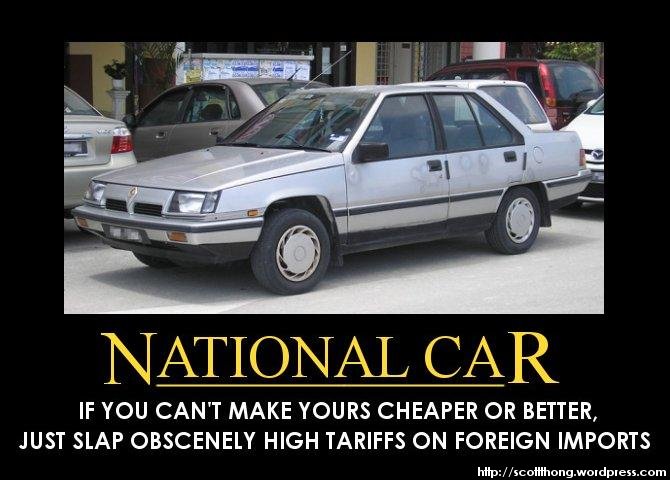
Just like any GLC in Malaysia, political interference is unavoidable in Proton’s case. As we know it, our government offered the “tongkat” to Proton while development for public transportation system was ignored. This led to the masses having little to no choice but to settle for a Proton to move around. Over the years, Proton became complacent and turned a blind eye on the quality of its products.
It was also political pressure and the resistance of foreign control on a Malaysian GLC that ended the long-winded talks between Proton and Volkswagen; not once but twice!
Should Proton forgo national pride and get taken over by an automotive giant such as Volkswagen (VW), Proton would’ve benefited from gaining access to VW’s myriad of technologies. Case in point, Skoda. Once the “Proton” in Czech, it was VW’s Midas touch that turned Skoda into a desirable car brand in the UK. That said, VW would like to replicate Skoda’s success to Proton. Just too bad our political pressure prevented it, otherwise we would have been driving a Proton Golf or Proton Kumbang now (Beetle if you don’t get it).
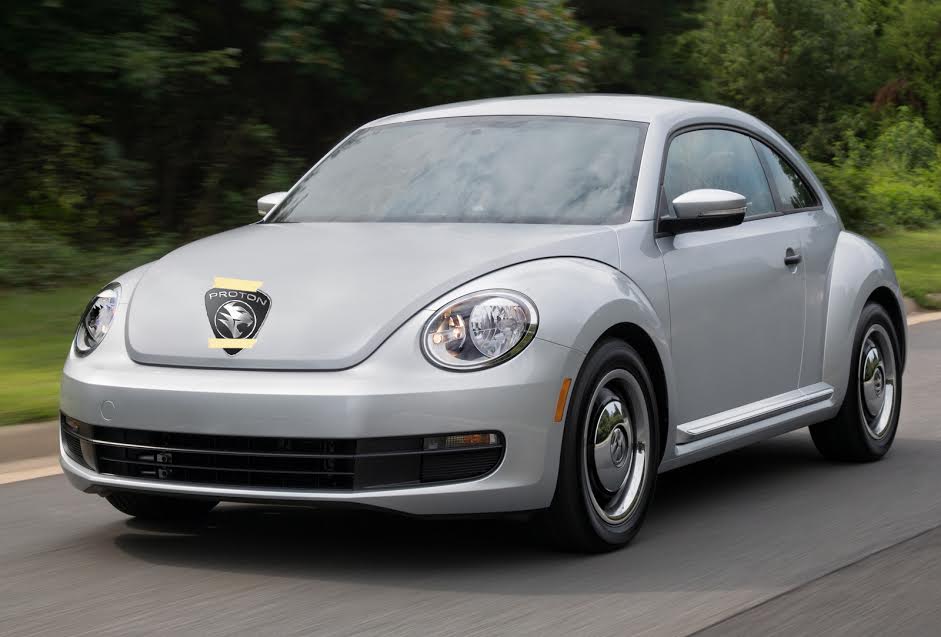
Uncommon among GLCs in Malaysia are bailouts from the government. While Proton has yet to receive bailouts the size of Perwaja or MAS, they do receive some research and development grants every year, as per the quote below:
We have been previously positive on Proton going into private hands in DRB but the low-hanging fruit in cost cutting has not materialised and we believe it will be loss making if not for the RM200mil in government R&D grants received every year
Strangely, that report appeared to be questionable as a few months after that report was made, Proton Chairman, Tun Dr. Mahathir Mohamad, revealed that Proton didn’t receive a single cent from the government and wants the government to pump billions to Proton to be competitive. So what gives?
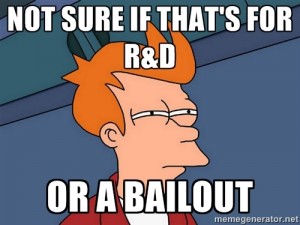
If that’s not enough, Dr M, Proton’s founder and current Chairman, is still at the helm of his beloved baby. Dr M’s influence can be felt in the automotive industry, as seen in his latest sarcastic attack on liberalising the automotive industry. This effectively means Proton will always remain under the control of the 90-year old Chairman. No one in Malaysia has forgotten his political strength in this country, and with DRB-Hicom on board, Proton will remain stuck with the political entanglement for the years to come.
But at least he’s like a test driver to Proton before a new Proton model is released. For a 90-year old who has some “petrolhead” in his veins, that’s impressive.

But we really, really, really want Proton to make it
Now Proton is like a small ship with no destination, made worse by having an incompetent crew with no idea on what they’re doing. To complicate things, that ship is lead by an overambitious captain who is treating his ship like that particular tune from this hit tune. Not forgetting, this lonely ship is sailing at the similar path for almost three decades while other ships had gone big and even belonging to another bigger fleet.
Is this a sinking ship or not? Well, that’s up to you to decide….
While Proton is a brand loved or loathe by Malaysians, here’s a reminder that Proton cars have been a part of our lives as Malaysians. From traveling with family members while singing “Balik Kampung” in a Proton Wira during the Raya Holidays; a guy impressing his date in a Proton Putra; and opening the driver’s door to pay the toll at LDP.
In fact, we’ll have goosebumps to see a Proton Satria GTI in an angmoh land rather than seeing a Buggati Veyron in Bangsar.

As much as it sounds, we don’t want Proton to fail but at the same time, we don’t want our hard-earned tax money to bail out Proton as well. Let’s forsake the ‘tongkat’ from Proton and let it walk by itself. As Perodua has proven it can stand by alone, there’s hope Proton will follow suit.

- 1.6KShares
- Facebook1.5K
- Twitter4
- LinkedIn8
- Email17
- WhatsApp21





